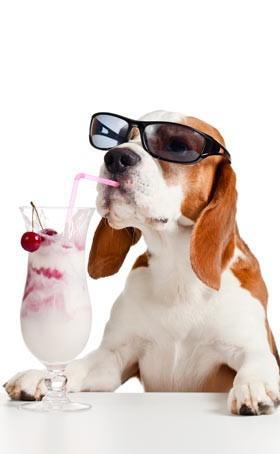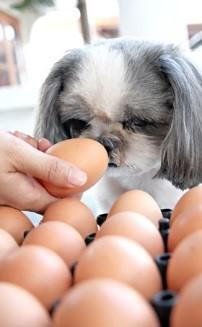Our pets rely on us to take care of them and keep them safe. They can’t talk, so it’s our job to be a responsible pet owner and give them what they need to be happy and healthy.
You pet needs food every day. But not just any food. They need nutritious food especially made for the breed of animal they are. Dogs need dog food. Cats need cat food. Fish need fish food.
 The first step would be to slowly stop feeding dry/kibble food or treats. Bagged dry kibble is HIGHLY PROCESSED and PRO-INFLAMMATORY. The glue used to make it stick into the neat little pellets you like is starch and this turns to sugar starting in the mouth. Sugar in food has many bad effects on the body. If you would switch to a moist food we believe that your pet would live a longer healthier life.
The first step would be to slowly stop feeding dry/kibble food or treats. Bagged dry kibble is HIGHLY PROCESSED and PRO-INFLAMMATORY. The glue used to make it stick into the neat little pellets you like is starch and this turns to sugar starting in the mouth. Sugar in food has many bad effects on the body. If you would switch to a moist food we believe that your pet would live a longer healthier life.
Try giving fresh organic vegetables as treats instead of the processed store-bought junk treats. (No grapes or onions or XYLOTOL).
The only "dry" food that is fresh would be the fresh freeze dried/dehydrated type foods which are actually less processed than canned food.
To avoid your pet becoming a deficiency statistic, we advise switching up their food brand or protein at least every 3 months.
You can switch over to a moist diet of either canned food, the refrigerated or frozen foods, raw, or home cooked. Make sure to slowly make this transition as you don’t want to upset your pet's stomach. The label must say that they are “balanced and complete”.
If you prefer to prepare your pet’s food, visit www.balanceit.com for a nutritionally complete home cooked meal recipes for dogs and cats. This site also provides recipes for a variety of specialized diets by condition, age, or special needs. Another home cooked website is www.mypetnutritionist.com. (Fees may apply)
Foods That Are Toxic to Dogs
Many of us are used to sharing some "people food" with our dogs. It's best to remember that dogs aren't the same as humans, though, and some foods that are perfectly safe for us can have devastating effects on them. Here, we explore some of the human foods that you should never give to your dog. Some of them may be surprising.
Onion and chives: Any form of onion (including raw, cooked, powdered, and dehydrated) may cause GI upset in a dog. Of even more concern, they can damage your dog's red blood cells. Damaged red blood cells result in anemia and all of the problems that come with it, including weakness, lethargy, and collapse. Baby food and human jarred meats can be a hidden source of these dangerous ingredients.
Chocolate: Most of us know that chocolate can be toxic to dogs. This is because of the caffeine and theobromine that it contains. These are both members of the methylxanthine family of compounds that stimulate a dog's cardio and neuro systems. Chocolate can cause agitation, seizures, and death. Small amounts can cause pancreatitis, a painful and dangerous condition. Certain types of chocolate contain more toxic compounds than others and dark baker's chocolate contains the most.
Coffee, tea, and other sources of caffeine: Caffeine is dangerous to dogs. It causes restlessness, increased heart rate, agitation, high blood pressure, seizures, and death. It is present in coffee, tea, chocolate, diet pills, energy drinks, and many other human products.
 Alcohol: This is one case where your dog's body doesn't process the compound much differently than yours does. Alcohol affects a dog's brain and liver just like it does a human's. However, it takes much less alcohol to do serious damage to a dog. Alcohol causes vomiting, diarrhea, seizures, coma, and death.
Alcohol: This is one case where your dog's body doesn't process the compound much differently than yours does. Alcohol affects a dog's brain and liver just like it does a human's. However, it takes much less alcohol to do serious damage to a dog. Alcohol causes vomiting, diarrhea, seizures, coma, and death.
Avocado: Avocado contains a substance called persin, which is toxic to birds, cows, and horses. It commonly causes diarrhea and stomach upset in dogs. Avocado pits are very dangerous if ingested by dogs, because they can cause intestinal obstructions that require surgery to relieve.
Tamarind, Grapes, Currants, and Raisins: These items have the potential to cause kidney failure and death in dogs. Signs include vomiting, diarrhea, lack of appetite, and lethargy. Dogs may develop severe kidney failure several days after the ingestion.
Macadamia Nuts: It isn't known how macadamia nuts cause toxicity in dogs, but they have a neurotoxic effect. The signs of toxicity vary with the amount ingested and range from muscle tremors to a dangerous increase in body temperature and hind leg paralysis. If dogs ingest baked goods containing macadamia nuts AND chocolate, the effects are worse and may include death.
 Raw Eggs: Raw eggs present the same dangers to your dog as they do to you: bacterial infections such as Salmonella and E. coli. Your dog is not resistant to these bacteria and they can result in serious illness. Even if your dog does not contract a dangerous bacterium, raw eggs can cause trouble. Avidin, a protein in raw egg whites, blocks your dog's body from absorbing the B vitamin biotin. If raw eggs are fed over a long period of time, the avidin can result in skin and coat problems for your dog.
Raw Eggs: Raw eggs present the same dangers to your dog as they do to you: bacterial infections such as Salmonella and E. coli. Your dog is not resistant to these bacteria and they can result in serious illness. Even if your dog does not contract a dangerous bacterium, raw eggs can cause trouble. Avidin, a protein in raw egg whites, blocks your dog's body from absorbing the B vitamin biotin. If raw eggs are fed over a long period of time, the avidin can result in skin and coat problems for your dog.
Raw Fish: Raw fish, like raw eggs, can contain bacteria that are harmful to dogs, such as Salmonella and E. coli. Dogs that eat raw fish from the pacific northwest of the United States are at risk of becoming infected with salmon poisoning. Salmon poisoning is extremely dangerous: it causes bloody diarrhea, vomiting, fever, seizures, and death in a large percentage of untreated dogs.
Fat trimmings, fatty foods: Fat and fatty foods are not metabolized by dogs the same way they are by humans. They can trigger pancreatitis, a serious inflammation of the pancreas that can lead to severe vomiting, lack of appetite, dehydration, abdominal pain and, in serious cases, death. It can also lead to chronic pancreatitis, a low grade, ongoing form of pancreatitis that is quite bothersome for the dog.
Bread dough: Rising bread dough (containing live yeast), when eaten by your dog, continues to rise in the warm, moist environment of the stomach. This can result in a bloated stomach and, eventually, a GDV, which is a twisted stomach. This is an emergency situation that usually requires surgery. Also, alcohol is produced secondary to the consumption of sugar by the yeast in the dough. This can result in alcohol toxicity when the dough is ingested by your dog, which can lead to seizures and death.
Xylitol: Xylitol is an artificial sweetener that is common in many human candies, gums, and baked goods. It can hide in some unexpected places, like toothpaste, as well. Xylitol causes a dangerous drop in blood sugar levels in dogs that can result in seizures. High doses of xylitol can cause liver failure in dogs. Xylitol can also be found in some peanut butters, be sure to check the label.
Baking soda, baking powder, and nutmeg: Many of the ingredients in your pantry are toxic when ingested in large amounts by your dog. Be sure to keep your pantry secured from your pet's prying paws.
 Too many treats: While not toxic, giving your dog too many treats will produce the same results as it does in humans: obesity. Obesity predisposes dogs to many other health concerns, such as joint problems, heart and respiratory problems, and diabetes mellitus. Receiving too many treats can also result in your dog eating less regular dog food, and this can cause dietary insufficiencies. Try breaking a large treat into several small pieces and making it last all day.
Too many treats: While not toxic, giving your dog too many treats will produce the same results as it does in humans: obesity. Obesity predisposes dogs to many other health concerns, such as joint problems, heart and respiratory problems, and diabetes mellitus. Receiving too many treats can also result in your dog eating less regular dog food, and this can cause dietary insufficiencies. Try breaking a large treat into several small pieces and making it last all day.
Vegetarian Diet: Some people who are vegetarian or vegan wish to provide their dogs with a similar diet. Dogs process certain nutrients differently than humans do and, therefore, a vegetarian diet can be dangerous. Consult your veterinarian before choosing a vegetarian diet for your dog.
Inappropriate life stage diet: Dogs that are fed a commercial diet that is not appropriate for their life stage can develop associated problems. For example, puppies should not eat adult or senior diets because they do not provide the appropriate ratios of protein, minerals, and other things necessary for proper growth. Senior dogs do not need the same protein and fat levels as highly active adult dogs. Your veterinarian can advise you on the proper life stage diet for your dog's individual circumstances.
Certain wild mushrooms: There are many wild mushrooms that range in toxicity from producing GI upset to resulting in death in dogs. Mushrooms can be very difficult to identify, so it should be assumed that all wild mushrooms are dangerous, and your dog should not be allowed to eat them.
Cat Food: Cat food itself is not toxic to dogs, but cats and dogs have different nutritional needs. Cat food is much higher in protein and lower in fiber than what a dog requires. Cat food will often cause GI upset in dogs and, if it is the only food source, it can result in kidney and liver problems from the high protein levels.
What to Do if Your Dog Eats Something It Shouldn't:
If your dog ingests a food, medication, or plant that you know is unsafe or one that you aren't sure of, call your veterinarian or the Pet Poison Help Line (800) 213-6680 or the ASPCA (888) 426-4435 right away and follow their instructions.



